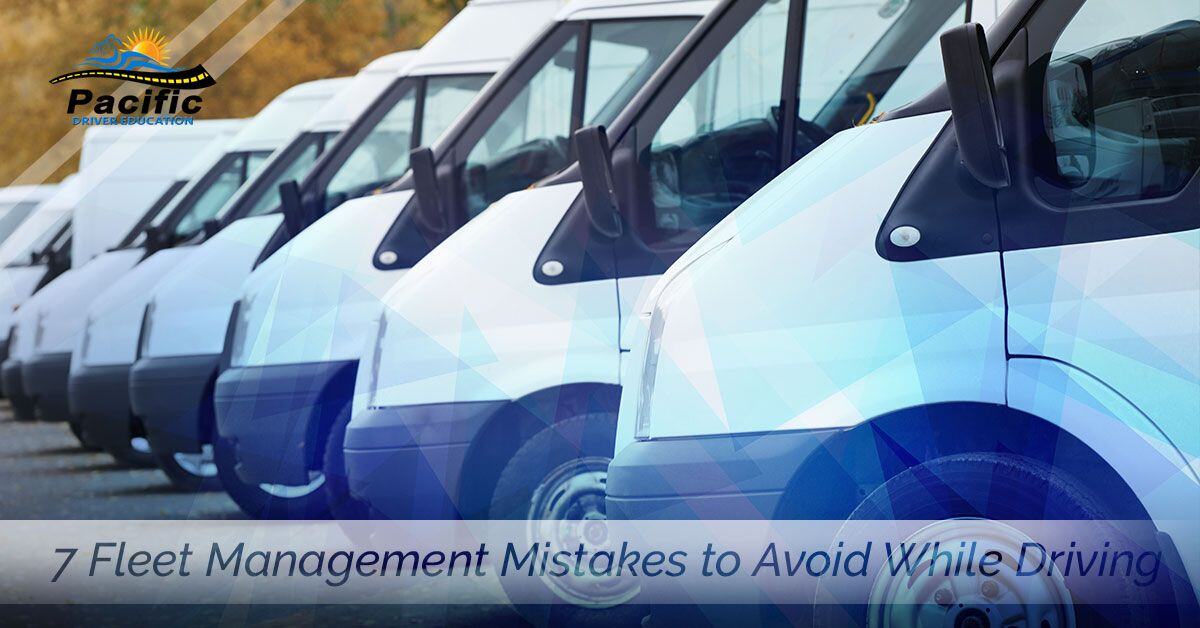There’s no getting around it – fleet managers must possess a very unique set of skills that include administrative abilities, communication skills and stick-to-itiveness. As critical as these skills are, effective fleet managers must also know how to recognize and avoid mistakes that can compromise the fleet’s safety and productivity. At Pacific Driver Education we teach fleet management safety and fleet management safety courses but it is up to businesses to hire professionals who meet all of the above prerequisites. Common mistakes that all fleet managers should avoid include the following:



